About the Canadian Coast Guard College
Learn about the college’s history, campus and training facilities.
On this page
Introduction
The Canadian Coast Guard College is a national maritime training facility located on scenic Cape Breton Island, Nova Scotia. It’s a national college that provides training and services in French and English. It delivers programs to support the College’s mission and mandate in marine safety, security and environmental protection.
The college’s unique and specialized training is sought after by organizations around the world. Each year, highly trained graduates join their colleagues as Coast Guard officers to provide services that are critical to Canadians.
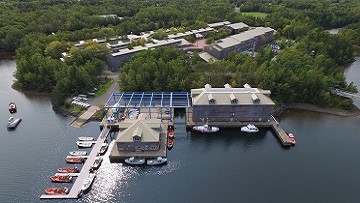
History
On May 5, 1964, Minister of Transport J.W. Pickersgill announced the government’s plan to establish an officer training college for the Canadian Coast Guard. The Canadian Coast Guard College was officially opened on September 7, 1965 with programs in Marine Engineering and Navigation Officer Training. The campus was established on the former Point Edward Naval Base and was moved to the modern Westmount complex in 1981.
The college is celebrating its 60th anniversary in 2025.
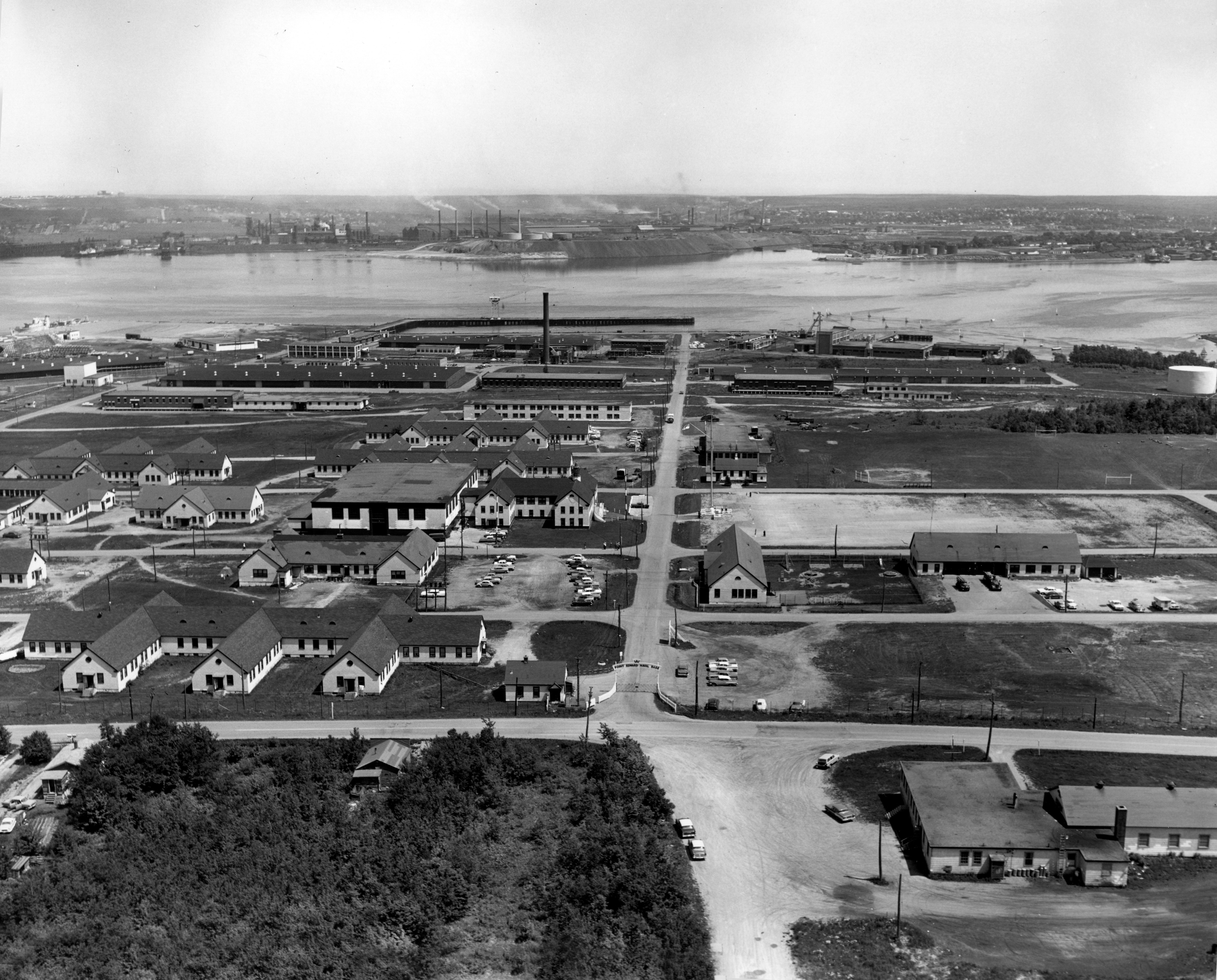
Partnerships
The College delivers programs through partnerships with Cape Breton University and several government departments, such as Transport Canada and Innovation, Science and Economic Development Canada.
Cape Breton University confers a Bachelor of Technology in Nautical Sciences to Officer Training Program graduates.
Transport Canada accredits marine schools in Canada by setting curriculum and quality assurance requirements for navigation and marine engineering training. It administers certification testing and issues officer certification.
Innovation, Science and Economic Development Canada sets certification standards and accredits institutions for Global Maritime Distress and Safety System training, as a part of MCTS training. It’s the issuing authority for radio operations licences, which it has delegated to the college.
Campus
The College is one of the most modern and well-equipped marine colleges in the world. The campus is conveniently situated on Sydney harbour and provides an all-inclusive, comfortable home for officer cadets.
When you arrive, you’ll be part of an elite community that will support you in achieving academic success. It’s here to help make your college experience memorable.
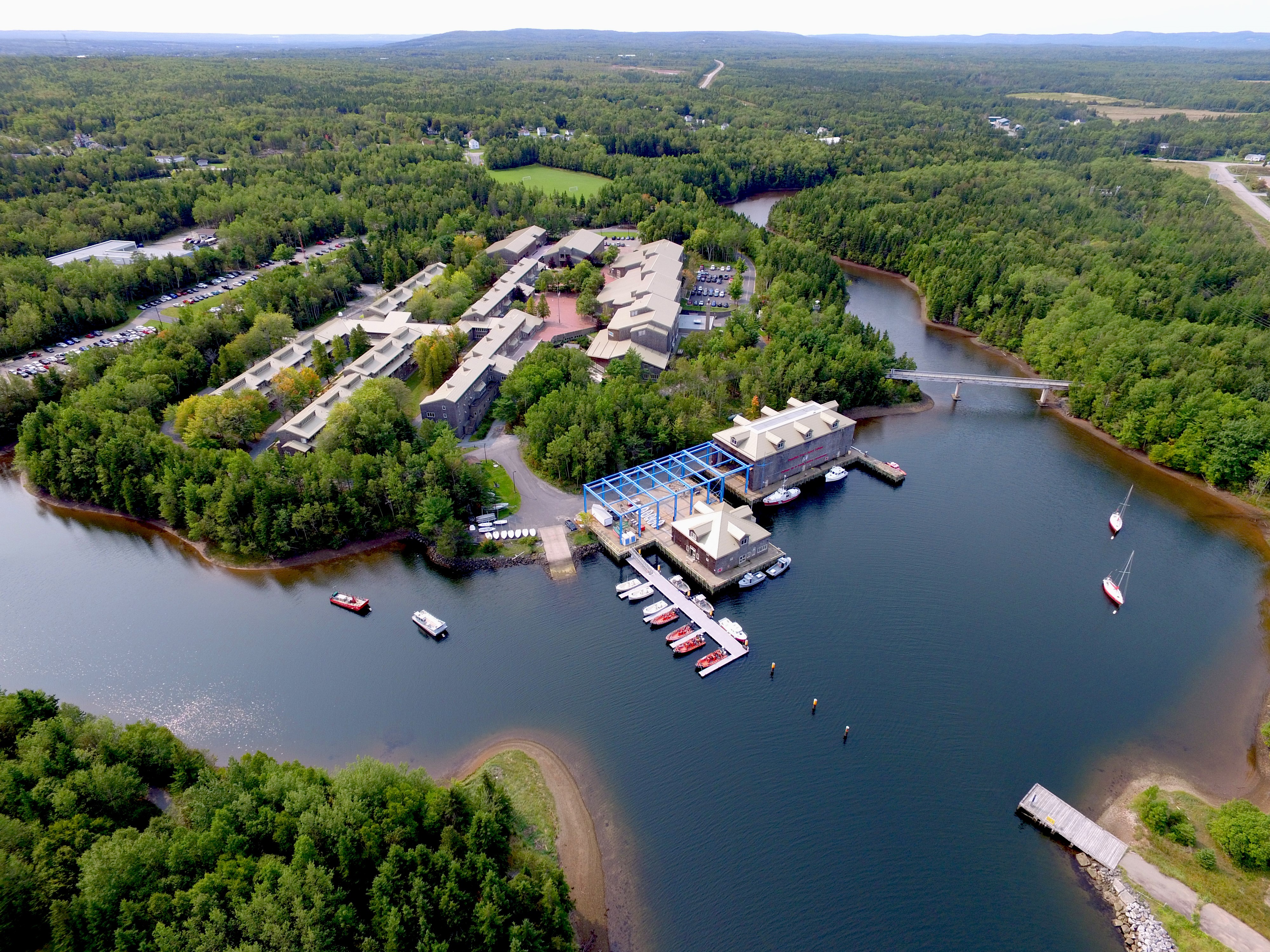
Classrooms and conference rooms
The College offers a variety of classrooms and conference rooms for Canadian Coast Guard training and other government departments, including:
- simulators
- a study hall
- training rooms
- an amphitheatre
Officer cadets and trainees are taught in small classes to optimize their learning environment.
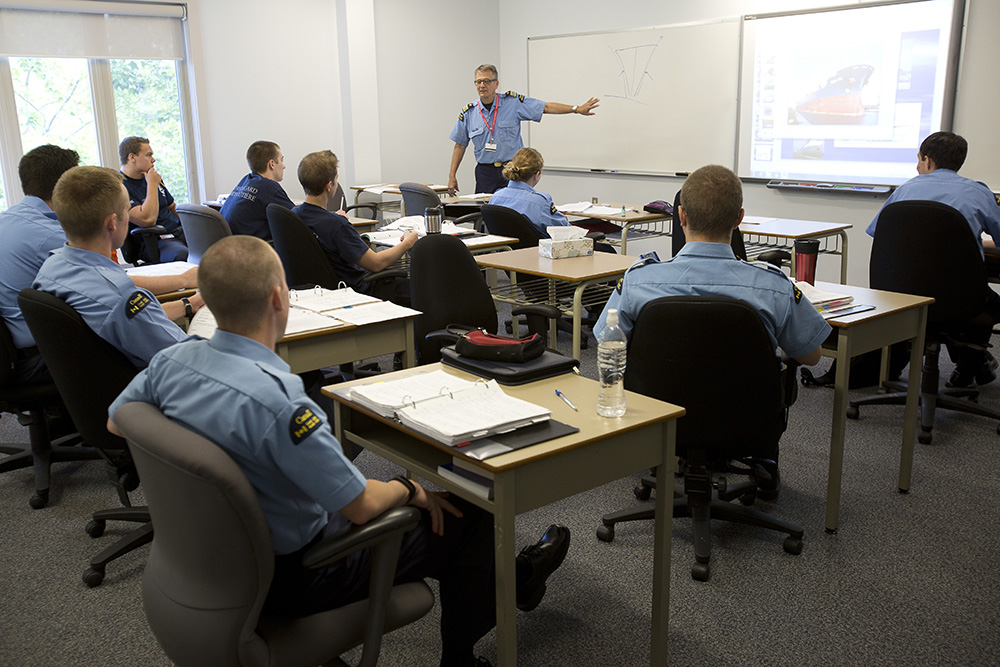
John Adams Library
The John Adams Library is one of the largest nautical libraries in Canada. Its bilingual collection is focused on nautical science and technology, and supports the college’s academic programs. You’ll have access to a wide variety of print and electronic resources such as:
- databases
- periodicals
- program textbooks
- reference materials
- government documents
The John Adams Library is open 24 hours a day for residents. Library staff are available on Monday to Friday from 8:00AM to 4:30PM.

The galley
Every day chefs prepare a variety of healthy all-you-can-eat meals. The galley proudly accommodates the needs of our campus community with vegetarian and pre-arranged dietary alternatives. The pastry chef’s menu includes plenty of delicious freshly-baked bread and desserts.
Officer cadets, trainees and staff may choose indoor or outdoor seating. The galley also offers occasional barbecue menus during the summer.
The galley is a relaxing place to take a break, share a meal and socialize with your peers.
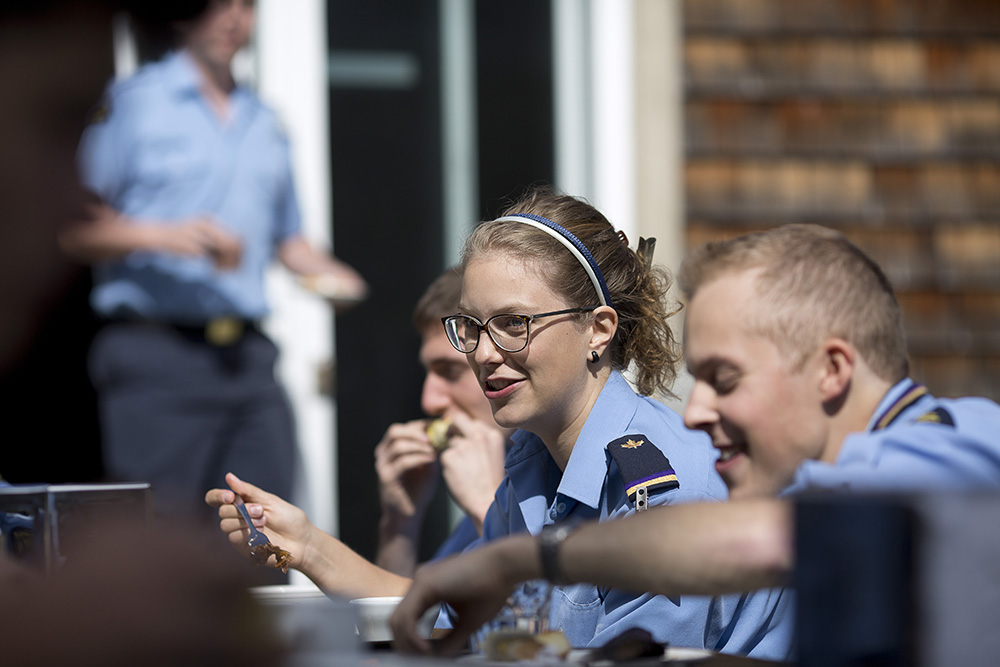
Residence
The College offers a variety of accommodations for officer cadets, trainees and government employees on travel status. Visitors and trainees enjoy the comforts of a private style hotel room. Officer cadets live in cabin-like accommodations called clusters, which emulate life on board a vessel and foster a team atmosphere. Each cluster is made up of:
- 8 private rooms
- a shared bathroom
- a shared living room
All residents have access to a:
- games room
- billiard room
- laundry facility
- large media room

The Wellness Centre and Sports Complex
The Wellness Centre and Sports Complex promotes and enhances the health and wellness of officer cadets, trainees and staff. As part of campus life, you can have fun and take part in friendly competitions with your peers and staff. The multi-functional facility includes:
- a music room
- a squash court
- a double gymnasium
- a 25-metre swimming pool
- lunch-time classes, such as:
- spin
- yoga
- CrossFit
- modernly-equipped fitness rooms
Take the fun outdoors, as our campus includes:
- a hiking trail
- a soccer field
- a baseball field
- walking and running trails in nearby Petersfield Provincial Park
The campus hosts college sports teams and clubs, which may include:
- hockey
- triathlon
- archery
- swim meets
- scuba diving
- boat Regattas
- the Cabot Trail relay
- intramural sports, such as:
- soccer
- volleyball
- basketball
- floor hockey
- ultimate Frisbee


Training facilities
Officer cadets and trainees have access to simulators, labs and equipment that will accelerate their skill development.
The College has several specialized simulators on campus. Simulators replicate conditions at sea and present possible scenarios for you to respond to. Working with simulators enables you to practice your skills in a safe and controlled environment.
Benefits of training with simulators include:
- low risk levels
- quantifiable training
- real-life experiences
- immediate feedback
- knowledge retention
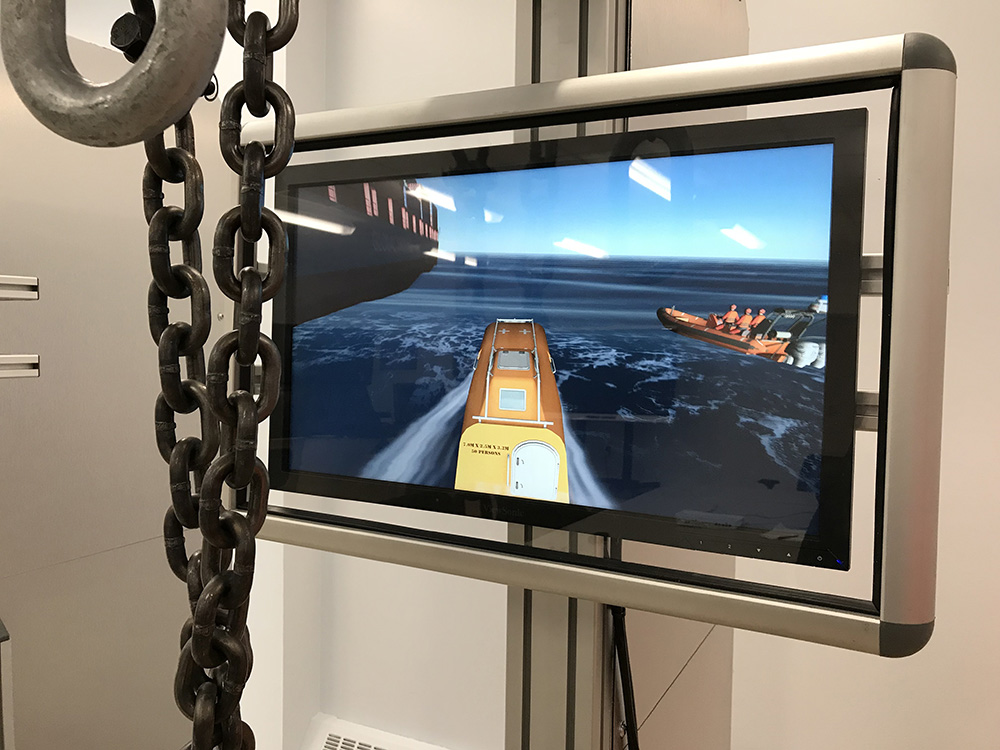
Wärtsilä training engine
The Wärtsilä training engine replicates a typical engine room that would be found on board any Coast Guard vessel, including a fully functional Wärtsilä engine. This lets students practice the hands-on skills they will need to safely work in an engine room. With the training engine, you’ll learn how to:
- operate the engine
- perform basic maintenance using the maintenance schedule
- monitor the performance of ship systems, like pumping arrangements
- dismantle and rebuild components of the engine
Marine propulsion plant simulator
The marine propulsion plant simulator replicates a typical engine room and control room that would be found on board any Coast Guard vessel. You’ll learn:
- watch-keeping routines
- how to monitor the performance of ships systems, such as:
- pumps
- engines
- other systems on board ship
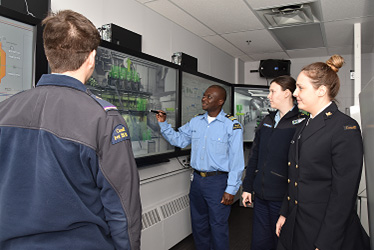
Planetarium
Celestial navigation is a highly specialized skill that could be life-saving in case of a power outage while at sea. Our planetarium simulates the night sky and helps you to learn about:
- constellations
- star identification
- night sky orientation from any point on earth, in any season
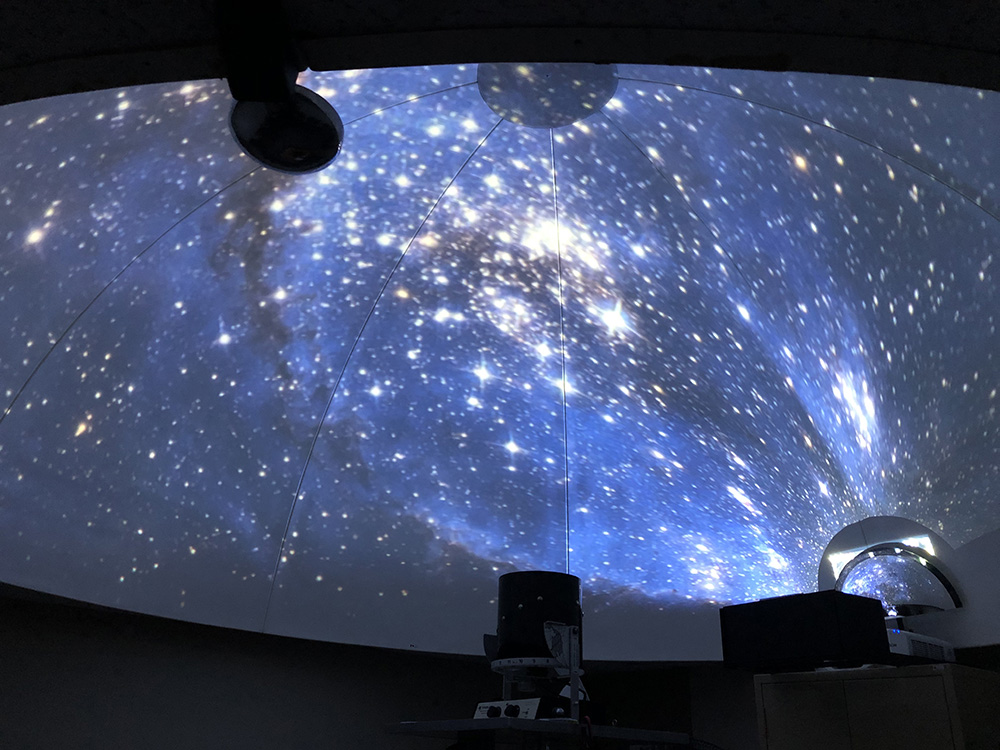
Navigation simulator
The marine navigation simulator contains 8 simulated ship bridges. It’s fitted with the latest navigation equipment and can portray any port or body of water in the world.
You’ll learn how to:
- manoeuver vessels in various conditions
- respond to real-life scenarios on a ship’s bridge
- navigate in different weather and sea conditions
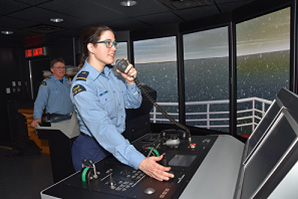
Ice management simulator
This simulator replicates Coast Guard icebreaking services for ferries and commercial and fishing vessels in ice-covered Canadian waters. You’ll learn how to provide these services, which include:
- harbour breakouts
- vessel escorts through ice
- maintaining shipping routes
- providing ice information services
You’ll use the simulator to learn:
- safe navigation
- how to maintain open routes for maritime commerce
- how to prevent flooding and the formation of ice jams
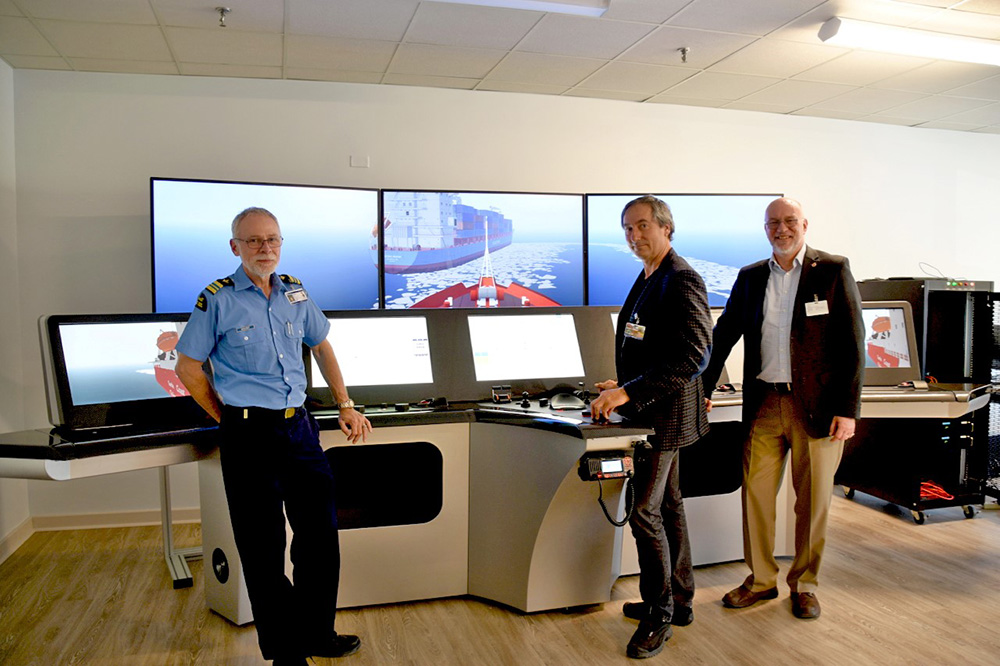
Marine radio operations simulator
The marine radio operations simulator replicates the basic equipment of a Marine Communications and Traffic Services centre. Trainees are divided into groups to act as the coast station staff and ship feeders. This allows the College to teach:
- sail plan processing
- broadcast principles
- radio procedures for:
- safety
- distress
- urgency
You’ll also learn how to use highly specialized radio equipment, such as:
- Navigational Telex
- Continuous Marine Broadcast
- Maritime Assistance Request Broadcast
- Marine Communications Logging System
- Information system on Marine Navigation
- Very High Frequency Digital Selective Calling
Vessel traffic services simulator
Using the vessel traffic services simulator, you’ll gain experience with:
- traffic clearance
- issuing a direction
- issuing a recommendation
- assessment of relevant traffic
- when to pass on navigational information
- Marine Communications and Traffic Services powers
You’ll also learn how to make important reports, such as:
- vessel reports
- prior to zone entry
- upon arrival at a calling-in-point
- upon arrival at a berth
- before commencing a departure manoeuvre
- upon completion of a departure manoeuvre
- before commencing a manoeuvre that may be detrimental to safe navigation
- after the manoeuvre is completed
- pollution reports
- contravention reports
Waterfront facility
This facility is home to the vessels that are used for instruction and recreation at the Coast Guard College. You’ll learn how to navigate:
- sailboats
- rescue crafts
- power vessels
You’ll learn valuable on-water skills throughout the summer school term, including:
- aids to navigation
- environmental response
- search and rescue procedures

Marine engineering training facility
This training facility provides hands-on training for officer cadets and trainees following the engineering stream. It provides practical training to give you the engineering skills you’ll need for the Coast Guard fleet. These skills include:
- electronics
- welding and machining
- refrigeration and hydraulics
- engine repair and rebuilding

- Date modified: